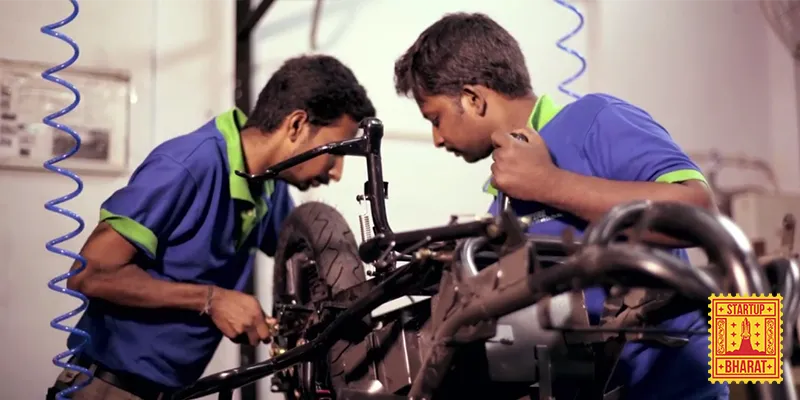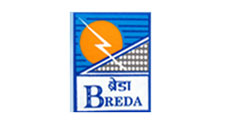
Why engineering major Greaves Cotton is betting big on electric, starting with its Ampere Vehicles buy
The 160-year-old manufacturing powerhouse Greaves Cotton is leapfrogging into electric mobility with its recent bets in the space, including its acquisition of Coimbatore-based startup Ampere Vehicles. Here’s why it’s doing so.
Indian engineering giant Greaves Cotton, known for its diesel engines, generators, and pump sets, is going the electric way, betting big on electric mobility in its bid to leapfrog into a more sustainable, environmentally-responsible company.
The manufacturing major, which recently acquired Coimbatore-based startup Ampere Electric for Rs 150 crore, is now leapfrogging from a predominantly diesel engine resource maker to a fuel-agnostic solution provider. And Nagesh Basavanhalli, Managing Director and Chief Executive of Greaves Cotton, believes this is a natural transition for the 160-year-old-engineering company.
“On any given day, we touch the lives of close to 10 million passengers, ship close to five lakh tonnes of cargo, with 5,000 retail outlets, and access to 9,000 mechanics. We have over five million engines on-road and we have a great after-market reach. Electric is where the future lies,” says Nagesh.
While Greaves Cotton’s traditional business has diversified into marine, defence, agriculture, and construction equipment, its recent acquisition of Ampere Vehicles is a shot in the arm for its electric mobility ambitions and brings the startup a step closer towards becoming an environmentally-responsible corporation.
Buying into its electric mobility bet
In September 2019, Greaves Cotton acquired Ampere Vehicles for Rs 150 crore. As part of this deal, Greaves acquired a 67 percent stake in Ampere at the time of the acquisition; this will soon increase to 80 percent.
“We have given an exit to all the investors of Ampere as it is now the electric mobility division of Greaves. The Bengaluru electric mobility division along with Ampere in Coimbatore will be the centre of all mobility solutions,” says Nagesh.
With India making strides towards electric mobility solutions, this acquisition heralds a new era for traditional manufacturing companies.
“We have announced the launch of our high-speed electric scooter under FAME 2 (Faster Adoption and Manufacturing of Hybrid and Electric Vehicles). With 325 facilities pan-India, (we have divisions in) two-wheelers, three-wheelers, Greaves Care, infrastructure and charging, and selling spare parts,” Nagesh explains.
Greaves’ transition into a fuel agnostic player is focused at all forms of mobility — diesel, CNG, hybrid, and now, electric. “We are looking at ways to reduce the total cost of ownership. What better way than electric?” Nagesh adds.
India is the fifth-largest auto market in the world, and crude oil imports make up the single-largest component of the country’s import bill at nearly $85 billion this year, according to data from the Oil ministry’s website. Reports suggest India imports close to 82 percent of all its oil needs.
At present, the challenge is building awareness and doing away with range anxiety. Still, Nagesh believes these challenges may soon be overcome, thanks to technology improvements that enable fast charging options.
Why Ampere and why Coimbatore?
“Whether it is the ride-sharing or delivery food-services providers, mobility will move towards cleaner, shared and connected dimensions,” Nagesh says.
And already, the market is seeing these trends unfold. Last year, ride-hailing platform Ola invested $100 million in bike rental startup Vogo for a majority stake, in a major show of confidence as investors increasingly bet their money in the era of micro-mobility.
This is where Ampere steps in. Founded in 2007, the idea struck its CEO Hemalatha Annamalai when she attended a conference with her husband in Japan. A speaker there made a strong statement, “Gone is the era of the ICE (internal combustion engine)”, and spoke at length about how electric vehicles will create ripples in the future.
True to its vision, 12-year-old Ampere has also created ripples in the market, impacting the lives of people in Coimbatore. “Whether it is with employing more local women or local populace that means they have focussed on local impact,” says Nagesh.
Ampere has built products catering to both business-to-business (B2B) and business-to-customer (B2C) clients. In the B2C space, the primary products are electric cycles and electric two-wheelers. In the B2B segment, the startup sells e-scooters for courier and door delivery.
Ampere has been consciously involved in R&D through frugal engineering to bring out products and processes that can ensure social transformation, especially in rural markets. The startup claimed to be the first company to design electric vehicles for the differently abled in Tamil Nadu and Kerala.
It has even designed a product called Trisul targeting textile and spinning mill workers. These workers are predominantly rural women in the age group of 20-40 who have to walk between 12-15 kilometres each day inside the factory shop floor to manage the spindle.
“Ampere has a credible tech background and a startup type of agility. It has a lot of on-the-ground learning about India and its surrounding markets. Combining this startup agility with our backing, market share and financing, we have a winning combination,” says Nagesh, of the team at Ampere.

An infrastructure cry
While the supply of electric vehicles is growing, it is far outpacing the developments taking place to improve the infrastructure backing electric vehicles. The jury is still out on which type of infrastructure will work best.
Worldwide, electric vehicles have two common charging options – charging stations and swappable batteries. A fixed charging system is made up of a permanent docking system that can be set up at malls, homes, and offices.
Luxury sports car maker Porsche is experimenting with a 450 KW charger. German luxury carmaker BMW has similar technology – both charge a car for 100 km in under five minutes. Tesla too has charging stations with fast chargers, but continues to work on swappable batteries.
Currently, Greaves is working on different ways to ensure the infrastructure ecosystem improves to enable greater adoption of electric vehicles. With this in mind, the team is already working on building different battery technology and infrastructure solutions.
Nagesh believes that with more traditional large companies looking at going electric, the work to develop the supporting infrastructure will pick up pace.
“With respect to last mile e-mobility, when you look at 200 million people at the bottom of the pyramid, they require transportation which is shared, connected, and affordable. The price and cost of an electric two-wheeler is affordable
But costs aside, for major conglomerates such as Greaves Cotton, going the electric way is their answer to being future-ready in the move towards sustainable, clean energy solutions.
“With more people using electric vehicles, the larger impact on the environment cannot be discounted. Many Indian cities are counted among the most polluted ones, we all need to work together to change that,” concludes Nagesh.















